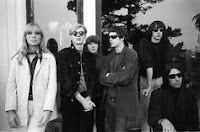Born in Louisville, Kentucky, jazz vibraphonist, percussionist, bandleader and actor, Lionel Hampton learned to play the xylophone and drums in the 1920s. He moved to California in 1927, playing drums for the Dixieland Blues-Blowers.
In 1930 Louis Armstrong came to California and hired the Les Hite band, asking Lionel if he would play vibes on two songs; he did and popularized the instrument ever since.
In November 1936, the Benny Goodman Orchestra came to Los Angeles, and Goodman went to Hampton play. Goodman asked Hampton to join the Benny Goodman Trio, made up of Goodman, Teddy Wilson, and Gene Krupa, expanding it into the Benny Goodman Quartet. The Trio and Quartet were among the first racially integrated jazz groups to record and play before wide audiences, and were a leading small-group in an era when jazz was dominated by big bands.
Lionel ranks among the great names in jazz history, having worked with a who's who of jazz musicians, from Benny Goodman and Buddy Rich to Charlie Parker to Quincy Jones.
Among the many honors he has received, in 1984 he received the Jazz Hall of Fame Award from the Institute of Jazz Studies, and In 1992, he was inducted into the Alabama Jazz Hall of Fame.
Press links below to view You Tube videos:
-- "Air Mail Special"
-- "Flying Home"
HIGHLY Recommended (Press album covers for direct links to Amazon):

















